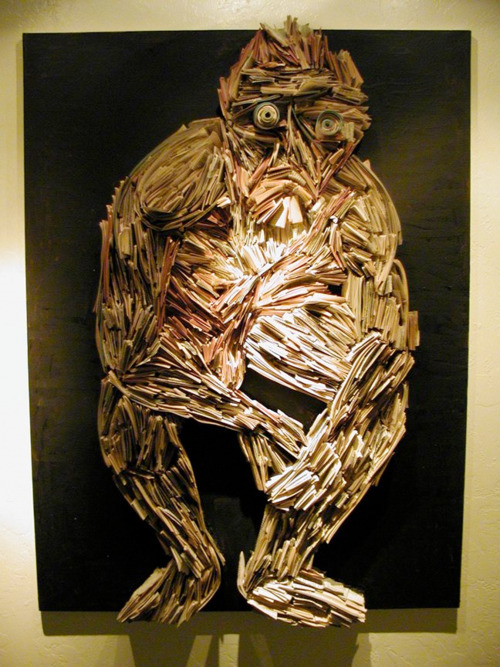Dear son
A free press is vital for democracies. At least that was the model in the 19th and 20th century. It was when communications channels were limited and citizens needed somebody to capture information, edit it and then present it.
But technology is blowing up the media model. Free press was only from the perspective of freedom of speech. But the Internet has made communications open and the economic model simply doesn't work. That's why old style newspapers are slowly but inexorably dying.
But it's not just the technology which has blown up the newspapers. At end of the day, they are businesses as well. Just because they are doing news doesn't mean that they are immune from the laws of economics and good management. This article talks about a classic case of bad strategic management. In this case, the blame clearly lies with the board.
By the time you grow up, not sure what the media foot print will be but I wouldn't invest in a newspaper or publication company. Just too unclear.
Love
Baba
LOS ANGELES REVIEW OF BOOKS | Zell to L.A. Times: Drop Dead
http://lareviewofbooks.org/post/12555828808/zell-to-l-a-times-drop-dead
James O’Shea
The Deal From Hell: How Moguls and Wall Street Plundered Great American Newspapers Public Affairs Books, June 2011. 416 pp.
Since it seemed it couldn’t get much worse, Los Angeles Times editor-in-chief James O’Shea decided to look on the bright side. It was 2007, and the newspaper had a new owner. He was Sam Zell, an iconoclast, as they call rich older men who ride motorcycles and wear leather jackets, whether they look good in them or not. Maybe Zell would be iconoclastic in the right way, you know, odd but decent and smart, useful, so O’Shea phoned the Chicago businessman about giving the Times an in-person interview. Zell agreed. O’Shea then offered to pick up his new boss at the airport. Zell declined, informing O’Shea that his personal jet could easily deposit him near his beach house in Malibu. When Zell called back an hour later, the polite part of their relationship was already done. Zell informed O’Shea that he would, in fact, fly into LAX and make himself available to reporters at an office there. “I was going to invite all of you to come to my house in Malibu,” said Zell — for the second time indicating his address — “until you sent a fucking reporter up there and scared the shit out of my housekeeper.” Zell wanted it conveyed that he traveled in an entirely different social sphere than O’Shea. “Let me tell you something,” he continued in his distinctive rasp. “You want to talk to me, call me and I’ll talk. But you don’t fuck with my employees. Got that?” O’Shea immediately apologized, even though he wasn’t sure what for.
And so began the improbable last chapter in the fall of a major newspaper, as chronicled by O’Shea in The Deal from Hell: How Moguls and Wall Street Plundered Great American Newspapers. Among other things, the book is a reminder that whenever you think things can’t get worse, they can. They can get much, much worse. I was there, at the paper, working at the magazine, with a good critic’s seat, up close and on the aisle. As we were living it, we knew this tawdry drama signaled yet another sea change for newspapers, with potentially devastating consequences for our democracy. It was also, thanks to Zell and his cronies, more entertaining than it had any right to be. The end of the story is in the beginning. But where is the beginning? Orwell aside, let’s say it was 1984.
That year was a numerical high point for newspapers. Americans purchased 63.3 million of them a day. James O’Shea was happily employed at the Chicago Tribune’s Washington bureau. Sam Zell, having made hundreds of millions of dollars in real estate, was busy finding ingenious new ways to avoid taxes. He was at the right place at the right time: regulations were falling away like leaves in autumn. He began acquiring companies that had recently emerged from bankruptcy. Using an accounting loophole called “tax-loss carry-forward,” he could dodge taxes for years on these companies. (This was preferable to rigging real estate transactions through a bank in the Bahamas, a move that almost landed Zell in jail in 1977. He avoided prison by testifying against one of his lawyers, who also happened to be his brother-in-law, and who subsequently served two years for tax evasion.) By 1984, the economy had recovered from Paul Volcker’s stop-go recession, and President Reagan was busy cutting taxes and deregulating the savings and loans and other industries. The mood of the time was pleasure grabbing and hedonistic, not unusual for easy-money eras. On the coasts, people of means kept bowls filled with cocaine they would bring out for company. Finance was thriving. The Wall Street guys smelled of lime cologne, their suits crisper, their hair shinier, and their restaurants more theatrical than anything we had seen in a long time. They said we would all benefit from their windfall, and it seemed like maybe we all would, even if those of us working at our first, low-paying jobs had no idea how.
